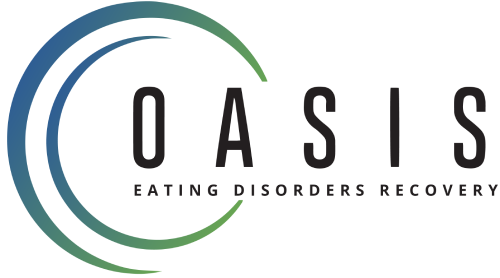In today’s health-conscious society, eating well and taking care of oneself are top priorities for many. However, sometimes striving for a healthy lifestyle crosses the line into an unhealthy obsession, known as orthorexia nervosa. Also known as orthorexia, this term describes an eating disorder that turns the quest for eating healthily into a harmful preoccupation.
While orthorexia has yet to be officially recognized in medical diagnostic manuals like the Diagnostic and Statistical Manual (DSM), the growing awareness and discussion surrounding orthorexia make it an issue that can’t be ignored. If you or someone you know is facing is dealing with orthorexia, read on for insights and guidance on how to address it.
Orthorexia vs. Anorexia
While orthorexia and anorexia may seem similar at first glance—both involve dietary restrictions and can lead to malnutrition—their underlying motivations and focuses are distinctly different.
In anorexia nervosa, the primary concern often revolves around body image, caloric intake, and weight loss. This leads to severe food restrictions, or avoiding food altogether, to achieve a lower body weight. Anorexia can often result in dangerous or life-threatening conditions, such as malnutrition, heart problems, and osteoporosis.
Orthorexia, on the other hand, is driven by an obsessive focus on eating foods that a person considers healthy and avoiding foods deemed unhealthy. The goal is not to lose weight, but rather to achieve an idealized state of health and purity. This can result in extreme dietary restrictions, such as eliminating entire food groups, which, ironically, can lead to malnutrition and other health problems like those experienced in other eating disorders.
In essence, while both conditions can result in similar physical consequences like malnutrition or severely low body weight, their psychological underpinnings are different. Orthorexia is less about how much you eat and more about what you eat, driven by an all-consuming desire for dietary “purity” and optimal health, rather than weight loss or body image.
The contrast between orthorexia and anorexia illustrates the importance of understanding the nuances of different eating disorders. While they may share some similarities in manifestation, their root causes and primary concerns can be worlds apart.
Signs and Symptoms of Orthorexia
Recognizing the signs and symptoms of orthorexia can be challenging, given its focus on behaviors—such as eating healthily—that are often socially encouraged. However, it’s the intensity and rigidity of these behaviors that can indicate a problem. The symptoms of orthorexia can largely be grouped under two major criteria:
- Obsession with Healthy Eating: One of the most prevalent signs is a consistent preoccupation with making what are considered “healthy” choices. This goes beyond simply opting for a salad over a burger; it involves intricate rituals, extensive research, and extreme emotional distress if a “healthy” eating pattern is disrupted.
- Disruption of Daily Life: Another significant criterion is the way this obsession begins to disrupt everyday activities and responsibilities. This can manifest as declining social engagements that involve food, extreme stress when healthy options are not available, or even falling behind in work or school due to time spent planning or preparing specific types of meals.
- Anxiety or Shame: A heightened emotional state when faced with the possibility of consuming “unhealthy” foods, including feelings of guilt, shame, or anxiety.
- Severe Dietary Restrictions: Limiting food choices to a very narrow selection deemed acceptable, which may include eliminating entire food groups, or partaking in repeated cleanses and fasts.
- Life Disruptions: Experiencing distress or difficulty functioning in daily life due to the obsessive focus on dietary perfection.
- Self-Worth Tied to Diet: A person’s sense of self-worth becomes closely linked to adherence to their strict dietary rules.
Tips and Suggestions For Managing Orthorexia
Orthorexia can often begin with the best of intentions—a desire to live a healthier lifestyle. However, what differentiates healthy eating from orthorexia is the extreme, obsessive nature of the latter, which can lead to severe physical and emotional consequences. Below are some tips for maintaining a balanced relationship with food, which can help in managing or preventing orthorexia:
1. Recognize the Fine Line Between Healthy Eating and Orthorexia
Being aware of your behavior and motivations behind your eating choices can be revealing. If you find that thoughts about food are consuming an inordinate amount of your time, or causing distress, it may be a sign that you’re crossing the line from healthy eating to orthorexia.
2. Embrace Mindfulness and Moderation
Mindfulness practices can help you become aware of your emotional triggers and thought patterns around food. Try to eat slowly, savor each bite, and tune into how your body feels. This can help you avoid extreme eating behaviors.
3. Avoid Labeling Foods as ‘Good’ or ‘Bad’
When you label foods in moral terms, you’re more likely to feel shame or guilt when you eat something you’ve deemed “bad.” Instead, consider all foods as permissible in moderation and focus on achieving a balanced diet overall.
4. Consult with Medical Professionals
Given that orthorexia is a complex condition that impacts both physical and mental health, a professional evaluation is important. Dietitians can help create a balanced diet plan, while psychologists can address any emotional or obsessive-compulsive aspects of the disorder.
5. Seek Support from Friends and Family
Having a support system can be crucial when you’re trying to make sustainable, healthy changes to your eating habits. Open up about your struggles, seek advice, and consider attending group therapy or counseling sessions.
How Oasis Can Help You With Orthorexia
At Oasis, we understand the complexities of orthorexia and are well-equipped to provide comprehensive treatment tailored to each individual’s needs. Our multidisciplinary teams consist of medical doctors, nutritionists, psychologists, and other healthcare professionals who collaborate to address both the physical and mental aspects of this condition.
Multidisciplinary Approach
Our holistic approach ensures that we treat not just the symptoms, but also the underlying emotional and psychological factors contributing to orthorexia. This allows us to offer a more complete and sustainable treatment strategy.
Comprehensive Assessment
The first step in our treatment process is a comprehensive assessment. We take into account your medical history, dietary habits, emotional well-being, and other pertinent factors to develop a treatment plan that is uniquely suited to you.
Personalized Treatment Plans
At Oasis, we don’t believe in a one-size-fits-all approach. Our individualized treatment plans are designed to align with your lifestyle and specific needs. This could include a balanced diet plan, cognitive-behavioral therapy, and other methods proven to be effective in managing orthorexia.
Ongoing Support
Recovery is a journey, and we’re here to support you every step of the way. From regular check-ups to continuous emotional support, we offer resources that will help you sustain a healthy, balanced lifestyle beyond treatment.
If you or someone you know is struggling with orthorexia, we urge you to reach out to us for a comprehensive assessment and personalized treatment plan. The sooner you seek help, the sooner you can embark on the path to a balanced and fulfilling life.

